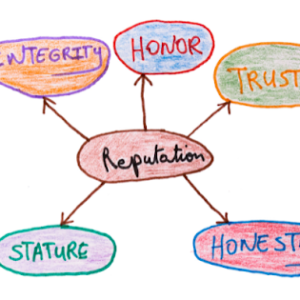The Ethics of Suppressing Negative Reviews in Healthcare
In an industry where trust is paramount, healthcare providers walk a fine line between managing their online reputation and maintaining transparency. As patients increasingly rely on online reviews to make decisions about their health and well-being, the stakes for what’s posted online—good or bad—are incredibly high. This has led to the rise of Healthcare Reputation Management services, like those offered by Dignified Online, that specialize in helping providers protect their image in an ethical, effective way.
But one question continues to loom large: Is it ethical to suppress negative reviews in healthcare?
The Digital First Impression
Before diving into ethics, it’s important to understand the role that online reviews play in today’s healthcare landscape. According to a BrightLocal survey, 87% of consumers read online reviews for local businesses in 2023, and healthcare is one of the most reviewed sectors. Whether a patient had a negative billing experience or a life-saving surgery, they now have a platform to share it—often within minutes of leaving a facility.
That review becomes a public record—one that may influence countless other potential patients. This puts immense pressure on healthcare providers to maintain a positive online presence, often leading them to seek Healthcare Reputation Management firms like Dignified Online for assistance.
What Does “Suppression” Really Mean?
In the world of reputation management, “suppression” doesn’t mean deleting or censoring reviews. In fact, that’s often not even possible. Most platforms like Google and Healthgrades don’t allow removal of reviews unless they violate content guidelines (e.g., are fraudulent, contain hate speech, or breach privacy laws).
Instead, suppression usually involves:
- SEO techniques to push down negative search results
- Content creation (e.g., blog posts, press releases, patient success stories) to dominate the first page of Google
- Soliciting positive reviews to outweigh the negative
- Filing legitimate removal requests for false or defamatory content
Dignified Online uses these strategies responsibly, aiming not to “erase” the truth but to give a fuller, more accurate picture of a provider’s quality and performance.
Where Ethics Enter the Equation
Healthcare is not just another industry. It deals with sensitive issues, personal stories, and often life-or-death consequences. As such, ethical considerations around suppressing negative content are significantly more nuanced.
Let’s explore both sides:
The Case For Suppression
- Protecting Providers from Unfair Harm
Healthcare professionals are increasingly the targets of malicious, exaggerated, or outright false reviews. A single bad-faith review can drastically skew a provider’s reputation. Ethical Healthcare Reputation Management, like that provided by Dignified Online, helps restore balance to the narrative. - Preventing Misinformation
Not all negative reviews are accurate or fair. Some may stem from misunderstandings, insurance issues, or emotional responses to bad news—none of which necessarily reflect poor care. Allowing misleading content to dominate search results can misinform future patients. - Promoting Constructive Dialogue
Responsible suppression doesn’t silence criticism; it promotes dialogue. Many firms, including Dignified Online, help providers respond to negative reviews in a compassionate and professional way, demonstrating a commitment to improvement rather than denial. - Protecting Staff Well-being
Frontline healthcare workers face …read moreSource:: Social Media Explorer







